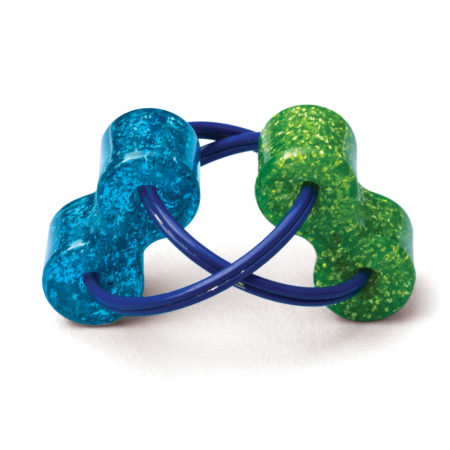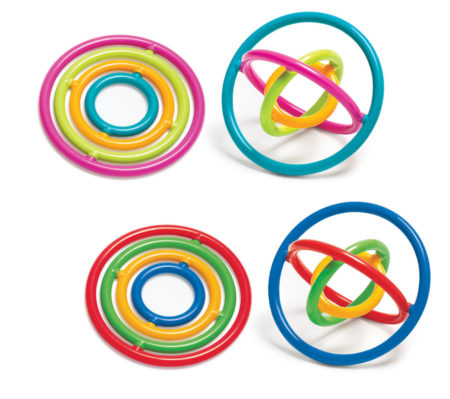Seals of Approval
As 2016 was drawing to a close, I got the happy news that two of our new fidget toys, Loopeez and Gyrobi, were selected among Dr. Toy’s 100 Best Toys of 2016. While I’m thrilled that our tools were recognized and am eager to add that seal of approval to our packaging, it got me thinking about the overall value of certifications and approvals–for others and for ourselves.

Stamps of approval come in many forms, from academic degrees, to professional certifications, from awards like the Malcolm Baldrige, Stevie, Oscar, Emmy, and Edison, to certifications by government and non-governmental organizations such as OSHA, FDA and Lean Six Sigma. In fact, certification processes exist for almost every industry and profession.
Valuing “Stamps of Approval”
Certifications, awards and other such stamps of approval are signs of accomplishment, achievement, excellence and success, as measured by supposed unbiased third parties. For those who are not experts in the given area, the approvals are shortcuts to making evaluations and judgements. They must therefore give consideration to the value of a given “stamp,” understanding, for instance, the competitiveness of the playing field, the difficulty of the achievement, the nature of the approval process, biases of the approving panel, etc.
One of the reasons that online customer testimonials and reviews have gained such popularity is that people can weigh the feedback of people they know, or people they don’t know, but know they can rely on for unbiased perspective.
Those being evaluated also stand to benefit from recognition of their success, as:
- Small accomplishments inspire further achievement
- Positive reinforcement promotes happy feelings
- Competition is a strong motivator
Because success is known to stimulate further achievement, trainers and managers are well-advised to give frequent feedback, kudos, and tokens of appreciation on both large and small efforts and accomplishments. {NOTE: Many such tools are found at Trainers Warehouse, Baudville, and Successories.}
Is there a downside?
Despite all the benefits of awards and certifications both to those being evaluated and those relying upon the results, some danger lurks for those under evaluation. Consider, for instance, the drawbacks of putting too much value on outside approval. If getting an “A,” graduating with honors, or winning an award tempts you to correlate the achievement with self-worth, what happens if you fail? What if you don’t pass your CPA exam the first time? What if your book doesn’t make the best-seller list? We must not let lack of recognition be an invitation to quit. Rather, we must use it, too, as inspiration to improve.
If we embrace Carol Dweck’s Growth Mindset philosophy, we need to be less fearful of failure. We need to take risks and not just do what’s safe and familiar. We should embrace those old clichés about “coloring outside the lines” and “listening to our own drummer.”
Let’s not be driven solely by external approval. Rather, let’s answer to the high standards we set for ourselves. If, for example, a training event yields low scores on “smile sheets” but improves results and retention, let us celebrate.
My own review of Loopeez and Gyrobi

While we celebrate the listing of our new fidget toys on Dr. Toy’s Top 100 Best Toys of 2016, let me share my self-review of these two new products. My expectation was that Gyrobi was going to be the “home run” fidget toy. It’s flashier, spinnier (yes, I made that up), and more colorful than Loopeez. But, it also has a few features that make it a great toy, but limit it as a fidget toy: it makes a quiet noise when it spins; you must hold it with your fingertips in a wide grasp and spin it with a finger on your other hand; it’s mesmerizing to look at. Loopeez, my comparison is completely silent and can be used with just one hand. While it’s less interesting visually, it is also perceived as less distracting.
I agree with Dr. Toy that both make a great contribution to the market of fidget toys, but for different reasons. And, we have yet another fidget toy in development that I think will also be a hit!

